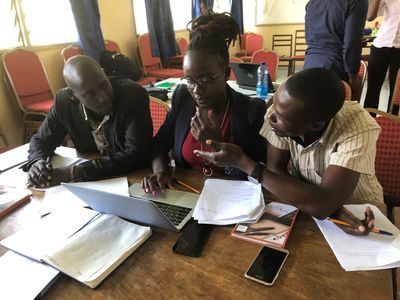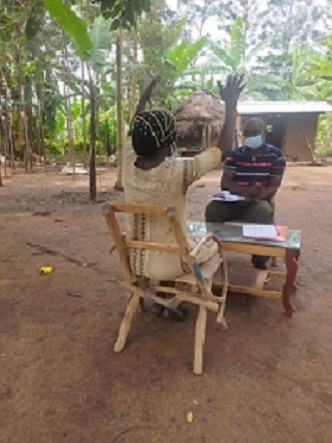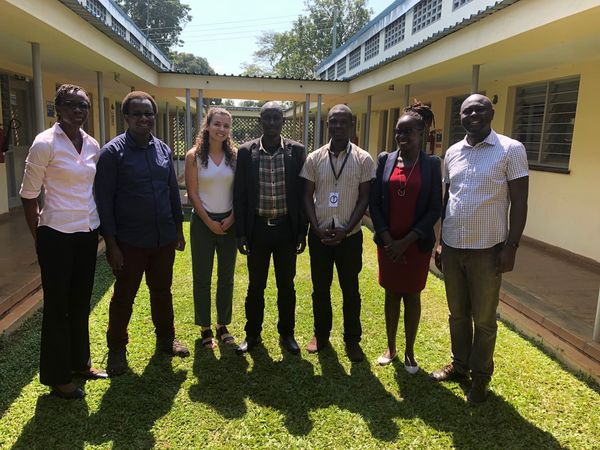Social Science Assessment

AEGIS Kenya social science team training. Assistant Research Officers review and discuss translations of study instruments and consent forms.
For spatial repellents to become successful at scale, donor organizations and vector-borne disease control program officials will need to see them as a valuable addition to current products. Additionally, end-users will need to consider spatial repellents both socially acceptable and effective, and implementers will need the appropriate channels to ensure sustained access.
The social science component of this project will investigate factors that could facilitate or inhibit the successful implementation of spatial repellents. Data will be gathered at the individual/household, retail, national, and global levels with the ultimate goal of providing programmatically useful data to guide recommendations for procurement, promotion, and distribution of spatial repellents. Findings will identify barriers and facilitators to access, initial uptake, and sustained use of spatial repellents.
Methodologies will include:

- Retail Audits to be conducted at several study sites to comprehensively understand the current mosquito control landscape.
- Household Survey regarding the use of mosquito prevention products, behaviors, and perceived efficacy during baseline and monthly visits throughout several study sites.
- In-depth Interviews will be carried out to determine household perceptions about where insecticide treated nets and indoor residual spraying cannot provide protection and where a spatial repellent might serve as an effective alternative.
- Nighttime observations will be carried out in Kenya to better understand when and where people are at risk of malaria exposure during routine activities on a nightly basis.
- Trials of Improved Practices will assess perceived efficacy and social acceptability of the product in study settings and solicit input to make product installation, use, and replacement more convenient and acceptable by the population at large.
- A Process Evaluation will examine the extent to which distribution through product delivery channel during the operations research study was implemented, challenges and successes in distribution, and opportunities for improving distribution in the future.
- Key Informant interviews will determine donor and stakeholder perspectives on the adoption and integration of new vector control products such as spatial repellents into the global public health arena.
Project Lead: Johns Hopkins University Center for Communication Programs

AEGIS Kenya social science team training group photo. From left to right: Dr. Prisca Oria, Mr. Vincent Moshi, Dr. April Monroe, Mr. Julius Ichodo, Mr. Isaac Wamalwa, Ms. Sheila Ekodir, and Dr. George Okello.
